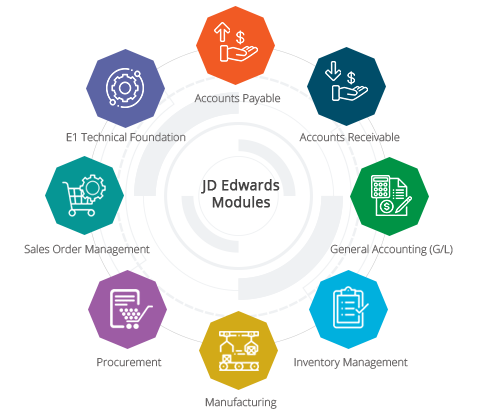Fintech debt collection companies face various challenges when it comes to collection. Everything is based on how well the resulting debt coverage works. With chronic defaulters, problems might get worse, in addition to the lack of information for credit ratings, the arduous administration of each person’s debt, and more counsel that results in frightening scale.
This article will focus on creative debt collection tactics that a fintech debt collection agency may employ to help.
Credit grading based on ML
Machine learning and natural language processing have made it possible for debt collectors to concentrate on information sources that aren’t easily accessible. They basically consist of data on transactions from banks, credit bureaus, accounting departments, and other external companies where a borrower has a record of some sort. Fintech debt collection firms will also look into things using unconventional sources like social media.
Using documented data, loan management systems use complex algorithms to predict future borrower payment behavior. For instance, every one of these concerns imagines that the borrower loses their job and posts relevant information on social media. The system will record this data, and you may decide whether to lend money to ensure the debt is reliably collected by the due date.
To advance their capabilities, companies that outsource debt collection use ML-based solutions. Additionally, the majority of banks employ ML algorithms across more than 30 open sources to acquire a thorough understanding of their customers’ payment activities. In the interim, transparency about personal data and innovative methods are required to prevent the development of regulatory “blind spots.”
No regulatory framework has the authority to specify how these systems evaluate creditworthiness or what information affects loan choices. Banks may be obliged to deploy fewer “smart technologies” that can’t obtain data from other sources in order to provide more precise predictions under heavy regulatory pressure.
Individualized payment schedules
The idea of flexible customization is not the sole use. It is now feasible thanks to digital finance. When employing alternative debt collection methods, it is feasible to use behavioral and payment history data from multiple online and offline channels, especially when generating customized payment plans based on each customer’s financial situation. Everyone could then have access to fair payment options as a result.
Debt collection agencies use deep machine learning algorithms. They evaluate the financial data from various patient sources and offer practical payment options. Their level of disposable income is used to evaluate their solvency and determine the best payment plans.
Healthcare is one sector where personalized payments are employed. The issue of public distrust affects everyone. The general proposition is used to applying for conventional loans; they know the whole application procedure or even refrain from asking questions since they believe it should be streamlined. Some clients are also aware of their eligibility and how credit scoring works. These people will need time to get beyond their prejudices and obtain the specialized loans that traditional lenders are less likely to offer.
Savvy debt collectors
Robots and intelligent assistants highlight the operation of fintech debt collection companies. But generally speaking, the process needs to be simplified and more straightforward. On the website, customers can contact virtual debt collectors whenever they want and via the channel of their choice. Smart bots help by pulling data from many sources, including records, payment histories, and others, while creating a customized client profile and offering pertinent alternatives for debt payback.
When a customer chooses a payment option, their debt accounts are promptly updated without needing external agent verification or underwriting. Additionally, fintech debt collection firms may utilize bots rather than individuals because automation gives the fastest turnaround times.
Chatbots ensure conformity to the Telephone Consumer Protection Act and the Fair Debt Collection Practises Act. Debt settlement may happen anywhere and at any time. Therefore, local laws need to be more flexible to accommodate them. Specialized automated debt collection software helps to discover a solution by adjusting to legal circumstances.
Automated payments reminders
The difficulty of repeatedly sending debtors emails and SMS messages using custom-made, self-generated templates is removed by an automated reminder system. If you want to save time, pick the customer-valued engagement channel. In this instance, the rest will be evident.
Because reminders are perceived as psychological pressure, you should be careful with their frequency and wording and use them with other tactics. Additionally, collection agencies can contact clients through all electronic channels under the CFPB’s final rule modifications.
Following up on the debts
For various reasons, including negligence, borrowers may move without notifying the lenders. Additionally, the company may be stuck with unpaid debt from these past-due customers because there is no forwarding address in the database.
Using tracking software helps improve collection. For instance, batch tracing makes it possible to check debtors’ forwarding addresses online continuously. Perhaps the only obstacle to debtor tracking is GDPR; once more, it may impose restrictions on how personal data is utilized.
A communication tool that allows interaction
Communication innovation is sparked by various digital platforms like social media, mobile communication, and online shopping that have thoroughly infiltrated consumers’ daily lives. As a result, their digital footprint and the amount of information available expand.
Current trends are facilitated by technology. Customers may feel more at ease by moving from in-person bank visits to remote, online interaction. The main objective is to reduce the cost of financial intermediation. Financial institutions can also become more competitive geographically since they can now reach clients who reside further away.
The shift to digital technology might significantly affect the banking sector. The industry is most dependent on computers. Experience is essential, mainly since Internet banking has grown by 20 times.
Changes to policy
Given the increasing possibilities, information and communication technology will undoubtedly advance and inspire new policy objectives. Prudential regulation presents the most challenges.
Regulators must assess the operational risks when new lending technologies and business models go through their first period of real-world stress. Other worries are real, as well. For instance, when organizations and consumers utilize more online services, there are increasing cybersecurity dangers.
Regulating authorities may find it increasingly challenging to ensure that their knowledge matches that of the industry as more people enter the financial technology sector and the rate of innovation quickens.
The policy will also be subject to changes. A bias brought on by comprehensive knowledge may cause central bankers to be more countercyclical. It will be required to understand new channels for policy transmission adequately. If new entrants reduce the importance of banks to the financial system, provide nonbanks access to liquidity lines, and integrate them into their operations, financial institutions may need to change the tools they use to enact monetary policy.
A few other crucial areas are competition policy to address the monopolistic tendencies of big digital platforms related to network effects, the natural tendency to converge to a few big platforms, and data policies to protect consumer privacy and ensure efficient and secure data collection, processing, and exchange.
A billion unbanked people worldwide may be reached through fintech, which is developing quickly. The financial system’s structure may drastically change due to this. Businesses should thus actively watch and support the transformation in financial technology. Implementing the required policy changes and keeping up with advances is vital.
Process effectiveness due to digitization
To improve recovery, it is essential to outsource a fintech debt collection agency. Additionally, there are a few significant process adjustments you must make,
Shifting away from call-centric collections
Numerous collections teams often call customers. Every business that seeks to recover debt will employ social media and other forms of communication. Customers who receive links to payment landing pages from lenders can make payments without feeling pressured by the lenders. The innovative approach lessens debtor anxiety while increasing the likelihood of repayment. As more and more borrowers do transactions online and streamline the process with auto-fill forms and speedy logins, the necessity for manually inputting account information is reduced.
Remove system compatibility issues
A scalable debt management system significantly emphasizes compiling all relevant claim data. It makes it feasible for collection procedures to be automated and digitalized as soon as possible. Additionally, the platforms for collection must go beyond what the initial source can offer. Investors and the services must have full access to the same data points.
Nowadays, most businesses select cloud-native solutions. Stakeholders may benefit from the centralized view of relevant user data in this case, which enables changes and new records to be quickly disseminated to all user accounts within the company.
Final Wrap
Agencies that collect financial debt help businesses make decisions that lead to more lucrative operations in the future. Collection agencies employ a wide range of tools.
Customer experience is yet another essential aspect that needs development. Utilizing AI and ML improves consumer experience and business opportunities. Fintech companies may dictate adoption rates, but you must make the most of technology and gather contextual knowledge.





